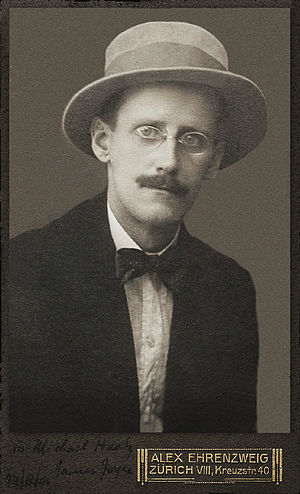Please tell us a little about yourself, Richard.
Hi! My ‘nom de plume’ is R.S. Charles and I am a writer and novelist.
I developed an interest in language from a very early age. My mother was German and my father was Cornish, so I was fortunate enough to spend my early childhood in both Germany and England. I also lived in Paris and Montpellier in France. I consider myself to be a true European.
After an English Grammar School education, I went to University and studied French, which I subsequently taught, along with German and English, for 25 years.
Having spent 15 of those years as Head of a large Modern Languages Faculty in an inner- city Community College, I wanted to experience life outside the harness of education, so my long-term partner and I decided to buy and run a small, seaside Hotel.
We are presently living in our home town, Plymouth, England, with our two dogs and cat.
So, how would others describe me? I can be grumpy, feisty, and impatient, but also sociable and fun. Being a typical ‘Libran’, I like things to be balanced and fair. I still have a strong sense of humour, though life’s trials and tribulations have knocked it about somewhat. I am a very open person and narrowly missed out on the post of Deputy Head in my first school by naively telling the interviewing panel that fellow staff referred to me as the ‘Head of Light Entertainment’ because I made them laugh so much! I still impersonate many of them to this day.
Tell us about Whispering Palms in a few sentences.
It’s a mystery/suspense novel with a ‘liberal sprinkling of racy romance’. The intrigue takes place on a remote, paradise island where the rich and anonymous entertain themselves by interfering in each others’ lives. It’s the first novel in a Trilogy. And with such suitable ingredients as glitz, glamour, greed, lust and blackmail, all tangled up in a web of hypocrisy and deceit, readers seem to think it would make a good mini-series/soap. I do too!
How did you come to write this particular book?
During our time at the hotel, I used to sit at the Reception desk and give a running commentary on the comings and goings of guests to amuse myself and others. One afternoon, I decided to write down my observations. I sat at the computer, allowed my imagination to embellish my thoughts, turned fact into fanciful fiction, and was soon surprised to find I’d produced enough material for at least one chapter of a novel. After that, there was no going back.
If you have a favourite character in your novel, why that particular one?
I love all my characters, ranging from the English aristocrats to the enigmatic, foreign visitors who meander in and out of their lives. I couldn’t pick a favourite. I don’t really feel there is a main character. After all, “Everyone has a past and everyone has a reason to be there.”
Where and when is your novel set and why did you make these specific choices?
The year is 1986 and the setting is a remote, secluded island in the Caribbean. Both these facts are of little real significance since, being so isolated, the cloistered community regards itself as merely being ‘somewhere in the Tropics’, does not take kindly to strangers or change, and chooses to continue to live by old Colonial values. It is as though they permanently exist in the 1950s, or even a time previous to that.
To be honest, I gave little thought to the actual time or place for the novel. I am a visual writer and simply imagined an opulent, old-fashioned lifestyle in a sun-drenched paradise. Perhaps the Caribbean cruise we went on in 2001 subconsciously came to the fore? It’s been my only taste of luxury…so far.
Where and how can readers buy your book?
"Whispering Palms" was originally published in hardback in 2010, and can be purchased ‘on-line’ from all Amazon outlets, WH Smith, (cheapest option), Barnes & Noble, and Waterstones. Some branches stock it ‘in-store’.
It is also now available for immediate download on Amazon Kindle, for PC, iphone, pad, Android and other e-readers, as well as cell phones/mobiles and Smartphones, and Nook from Barnes&Noble.
(I love phrases like ‘on-line’ and ‘in-store’. Currently, one can apparently throw any incongruous words together to suit one’s purpose! And now I’m sounding too much like one of my characters!)
What qualities are needed by a successful writer?
I could trot out all sorts of clichés, but nowadays, the whole notion of ‘successful writing’ in relation to novels largely depends on publishers and marketing. Some of the best writers probably aren’t ever published. Their work is still languishing in slush piles. And a good number of those who are published don’t receive enough exposure and get lost in the crowd.
Writing is like painting. You have to immerse people in what you have created. You have to appeal to someone. Different writers do this in different ways. And what appeals to one reader/publisher won’t necessarily appeal to another. All your efforts can be of little value if you don’t get the breaks, regardless of your qualities!
What is your working method?
I have the luxury of usually being able to write when I want to write. There is no routine. If the creative juices are flowing, it’s time to write, even in the middle of the night. If not, forget it! As far as actual ‘method’ is concerned, I always maintain that “Whispering Palms” wrote itself. I merely had some characters and an idea. Each time I sat down to write, the characters took over, did what they wanted to do, said what they wanted to say, and dealt with the situations they had put themselves in. Most of the time, I consciously had no idea what was going to happen until I wrote it.
It sounds glib, but planning and organisation were sketchy. Knowing one’s characters is the key to gauging their reactions, behaviour, dialogue, and the outcome of their follies. Also, being a mystery novel, there was a puzzle to solve. All the clues had to be there. Readers hate random reasoning. Fortunately, everything seemed to fall into place at the big reveal. Perhaps more by luck than judgement!
A Senior Police Officer wrote to me and said he had read the novel while he was off work, incapacitated with a bad back. He openly admitted all the clues were there, but he’d failed to solve the mystery. He had one desperate question, but I won’t tell you what that was. The answer is the key to the puzzle! I have to say, however, that I am finding the sequel to “Whispering Palms” more difficult to write. Having had one novel published, the pressure seems greater. This time I have a plot and I know the ending. Getting there is not so easy!
What single biggest mistake do beginners to writing make?
Putting all you have into your first novel!
To what extent are grammar and spelling important to a writer?
To me, any writer must endeavour to be a master of the basic mechanics of his or her own language; spelling, grammar, punctuation. It allows confidence and fluency. Relying on correction devices provided by modern computers is risky. Context and dialogue may influence style and language. “Fragment-consider revising” flashing at you is not helpful when you know what you have written is perfectly acceptable!
We all need to check spelling now and again, but if one word is spelt in several different ways, a writer should at least know which one to use. And if you leave it all to editors, they may re-write your book. BUT, we are all human. Commas are still somewhat of a mystery to me. And somehow the phrase ‘piece of mind’ found its way into the hard copy of “Whispering Palms”. Ooops!
How much revision of your MS do you do before you send it off?
I like to edit as I go, and give my work another thorough edit and check when finished. You can, however, do too much and change things for the sake of it, only to change them back again to what you originally wrote. I find working to an edit deadline quite pressurising. I made the mistake of working for long periods when I was tired. Not to be advised!
To what extent do you think genre is useful in the publishing world?
Genre allows writers to be pigeon-holed and readers to easily select what they wish to read. It can, however, be restrictive. If we wish to sell books, should we write what we wish to write and are comfortable with, or should we ‘go with the flow’ and venture into other genres which appear to be in vogue at the time? Many writers cross genre boundaries nowadays, and some readers never explore genres they are not familiar with. They rely on their favourite authors to continually produce novels which are similar in style and content to previous work. They like to feel ‘safe’.
One of my proofreaders told me that mystery novels ‘were not for her’. (Un)fortunately, she enjoyed “Whispering Palms” so much, she forgot she was actually proofreading it!
Marketing is often considered a chore. What is your opinion on this issue and how do you deal with it?
Don’t get me started on this one! I’ll say no more!
How do you know where to begin any given story?
Just pitch in. Start at the end, or in the middle. Have flashbacks. Look into the future. Run two storylines simultaneously. The rules have gone out of the window. Who knows? The main thing is to hook the reader from page one.
What sort of displacement activities keep you from actually writing?
I’m quite lucky, I suppose. I write when I’m in the mood. Of course, everyday life interferes now and then. We have dogs to walk, chores to do, and we even socialise occasionally. I don’t really have hobbies as such. Writing has become my passion. I watch much less television now, but networking on social websites can waste an inordinate amount of time and become totally addictive.
Recently, my writing has been greatly hindered by a dodgy, temperamental computer. On days I’ve wished to write, it has refused to work, and when it felt like working, I didn’t have the inspiration. I had a new ‘mouse’, and a new ‘memory’ installed, as both were not functioning properly. And then, to top it all, the hard drive mangled itself, out of the blue, a week later. The air was blue. I hadn’t saved the last 4,000+ words I had written to a back-up memory stick, only to the hard drive. I assumed I didn’t immediately need to. The computer had just been repaired. I have lost two pivotal chapters of my sequel, which I really laboured to write. They were leading to the big ‘reveal’ and had to be ‘just right’. Eventually they were.
Unfortunately, these chapters cannot be retrieved. Professionals have tried. I still haven’t come to terms with that. All that work for nothing! It’s going to take me a while to face the challenge of trying to re-create something I was really happy with. There’s a lesson there for everyone.
Do you have support from family and friends, or a writing group?
Generally, my friends and family are encouraging. At times, however, they think I become too obsessed with what I’m doing. And they are right!
I belong to ‘on-line’ writing groups for social interaction and moral support.
Is presentation of the MS as important as agents and publishers suggest?
I think you should give it your best shot. You are presenting yourself and your work. Often, you only have one chance to make an impression. Even then, you are competing with everybody else. If your presentation is good that’s at least something in your favour.
How long does it normally take you to write a novel?
It varies. “Whispering Palms” took about a year, but I also had a job at the time. I’ve nearly finished my WIP, and that has taken about the same time. The present project has been plagued by different problems, mostly to do with technology!
What are your inspirations?
Pictures, photographs, paintings, places, people, films. I am, as I have said, a visual writer. I need to be able to see and feel what I am writing about, albeit in my imagination. Before that can happen, there will have been some sort of stimulus. I am a great ‘people-watcher’. Well, that’s my excuse for spending so much time in cafes.
When I initially re-read the chapters I have now ‘lost’, I experienced exactly the atmosphere I wanted to be immersed in. Something has to inspire a writer to find the right words to fluently create the scene (s)he wishes to convey, rather like an artist needs to find exactly the right blend of colours to produce the picture (s)he wishes to paint.
If there’s a single aspect to writing that really frustrates you, what is it?
Having to use a computer! As much as it helps, it hinders. My scribble is not presentable enough, and publishers have ‘guidelines’.
Is there an aspect of writing that you really enjoy?
I really enjoy the experience of losing myself in the world of my imagination. If you can’t be where you want to be, write about it. If you are not able to be who you want to be, write about it. If you’re not doing what you want to do, write about it.
Do you think writing is a natural gift or an acquired skill?
I don’t want to discourage anyone, but in my opinion, we are all born to do some things well. Other things we have to work at. I spent years interviewing people for teaching posts in my department. Some candidates were extremely well qualified or had years of experience, but they weren’t natural teachers. Other candidates were less experienced, less well qualified, but had that ‘special something’. I knew it as soon as I met them. And that was not about me, it was about them. They may have needed a little guidance, but they were definitely born to teach.
Writers are the same. Some slog away and need to acquire skills to be competent. For others, it’s a breeze. Anyway, who’s to judge? If it’s what you want to do, and readers like what you write, who really knows how you got there? I doubt there’s ever been a good writer who has not been rejected many times!
What are you writing now?
I am just completing the sequel to “Whispering Palms”. It carries directly on from the last page of the first novel.
Do you have a website or blog that readers can visit?
My website,
www.mymysterybooks.com has just be revamped and contains all the necessary useful links to blogs and further information. Please check it out.
Given unlimited resources, what would be your ideal writing environment?
A luxury mansion, surrounded by palm trees, overlooking the beach on a sun-drenched tropical island. Sound familiar?
Where do you actually write?
We live in a rambling period property, and I used to have the back bedroom, (complete with bed and cosy chairs), overlooking our lovely garden and neighbouring park as my office. But now, needs must, and it has been converted into a guest room. I’ve been relegated to a corner in the back ‘parlour’! The desk and computer fit snugly into the alcove which looks out onto an old, cobbled lane.
Thank God for my imagination!
 We’re creative souls, we
who write stories, not generally the disciplined and single-minded types for
We’re creative souls, we
who write stories, not generally the disciplined and single-minded types for




































